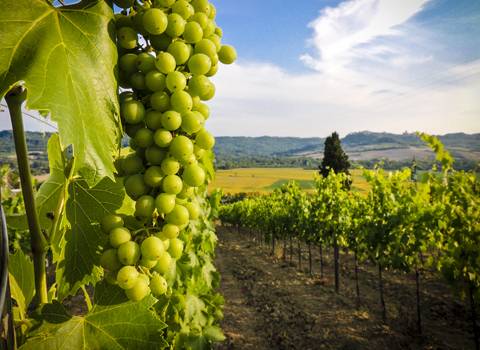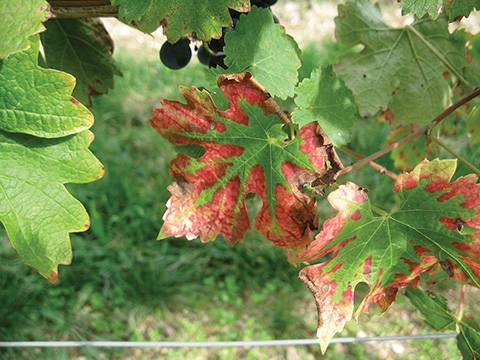Wine & Table Grapes
The Importance of K
Grapes need potassium to build vine strength and sustain adequate vigor. Because deficiencies can be localized, monitoring soil nutrient needs throughout the vineyard is crucial to ensuring crop quality.
Grapes need potassium to build vine strength and sustain adequate vigor. Because deficiencies can be localized, monitoring soil nutrient needs throughout the vineyard is crucial to ensuring crop quality.

Vines remove large amounts of potassium from the soil. In fact, "grapevines have a relatively high need for potassium (K), comparable to nitrogen, and much of the potassium is removed from the vineyard in the fruit," according to the Northwest Berry & Grape Information Network.1 Protassium+® premium sulfate of potash (SOP) efficiently supplies the potassium that is critical at bloom through veraison. The 17% sulfate sulfur in Protassium+ SOP also adds to the overall health of the vine.

It is important to keep in mind that grapes are sensitive to chloride and will be impacted if soil salt/chloride levels build up. Selecting a potash source that is low in chloride can help reduce salt build up and toxicity. Protassium+ SOP is virtually chloride-free, has the lowest salt index of the major potash source fertilizers and is an excellent choice for vine fertility management.
For every 8 tons of grapes yielded, 104 lbs. of K2O is removed from the soil (13 lbs. per ton).

A potassium deficiency in grapes will manifest itself in the leaves, turning them a deep red color. The plant will exhibit foliar deficiency symptoms like stunted growth, reduced yield and overall weakness. A deficiency may be localized and can be corrected by spot treating instead of treating the entire field.
1 2012 Northwest Berry & Grape Information Network.